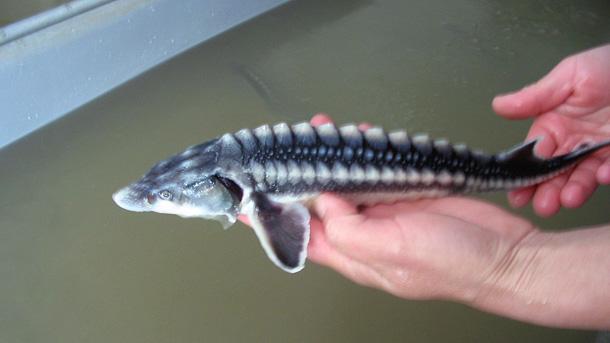When problems remain away from the attention of people, finding a solution is a difficult task. Awareness is needed in order to solve them. This philosophy is a basis for the WWF project that aims to inform society, fishermen and authorities about the risk of extinction of sturgeon fish in the Bulgarian part of the Danube. Among the main threats to the ancient fish are extensive fishing and illegal trade in caviar.
Sturgeon appeared on Earth before the dinosaurs but now they are threatened by extinction and can be found in two relatively small basins - the Caspian and the Black Sea. The lower Danube is the only place where the Black Sea sturgeon comes to spawn. Hence the important task of Bulgaria and Romania to protect this last habitat, giving life and future to the most ancient fish. Several years ago, the two countries imposed a moratorium until 2015 on sturgeon fishing in the river. However, monitoring of its implementation and preventing illegal caviar trade is proving to be quite a specific and difficult task.
 In order to exchange experience in the sphere a number of experts from various Danubian countries, as well as Turkey and the UK met in Sofia. Actually, the UK Customs Administration has the highest competence in the implementation of the Convention on International Trade in Endangered Species of Wild Fauna and Flora /CITES/. It is said that the income from this type of trafficking can be compared to those of drug and human trafficking.
In order to exchange experience in the sphere a number of experts from various Danubian countries, as well as Turkey and the UK met in Sofia. Actually, the UK Customs Administration has the highest competence in the implementation of the Convention on International Trade in Endangered Species of Wild Fauna and Flora /CITES/. It is said that the income from this type of trafficking can be compared to those of drug and human trafficking.
Ivan Hristov, project manager of WWF, told Radio Bulgaria about complexity of border control in this respect.
"On one hand control requires a good understanding of this specific legislation and on the other - the ability to distinguish between wild species and to know illegal from legal trade in caviar. The line is sometimes very thin. One needs to have very good knowledge of the requirements for packaging and labeling of products, as well as the accompanying documentation. That is why we organize these meetings to exchange experience with the best experts in the world."
In the few years since the moratorium on sturgeon fishing in the Lower Danube was imposed, no cases of poaching were registered. But that does not mean that the prohibition works.
"During the past 2 years the Executive Agency for Fisheries and Aquaculture found in the river special nets used for catching sturgeon. This suggests that poaching continues to exist. No cases of illegal trafficking of caviar were registered in this country. Two or three years ago in a foreign country caviar from wild Caspian sturgeon was seized, bearing label of a Bulgarian manufacturer of cultured sturgeon. All this shows that the authorities should be very wary for this kind of trafficking. "
Sturgeon fish have a rich past, and their future depends on us, said in Sofia a WWF expert. Bulgaria and Romania are the only EU countries where wild populations of the fish are still found in their waters.
English version: Alexander Markov
The prices of Easter goods are rising The Easter meal in the Balkan countries will be more expensive this year, BTA reports. Lamb in Serbia costs about 1,400 dinars (EUR 11.5) per kilogram in supermarkets. On Good Friday, fish..
Residents and visitors to Sofia will have the opportunity to learn more about Bulgarian scientists working in Antarctica and their important role in the exploration of the continent. The exhibition "Antarctic People - Caring for the Earth" by BNR..
Looking and feeling your best doesn’t have to come at a high price — especially in Bulgaria. The country has become a rising star in beauty tourism, offering top-tier salon services at prices that won’t break the bank. Whether you’re a local or a..
The prices of Easter goods are rising The Easter meal in the Balkan countries will be more expensive this year, BTA reports...
Residents and visitors to Sofia will have the opportunity to learn more about Bulgarian scientists working in Antarctica and their important role in the..

+359 2 9336 661
